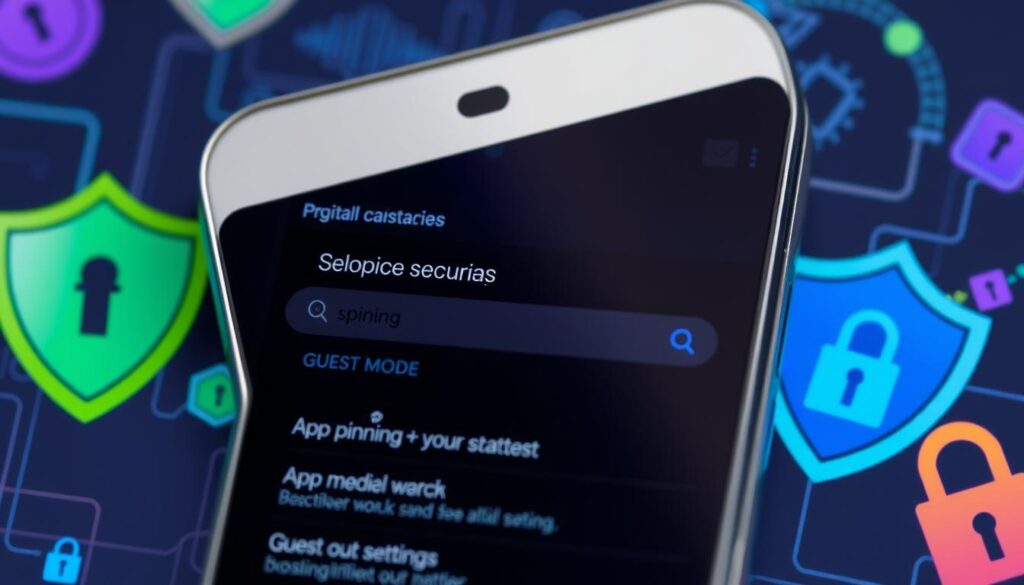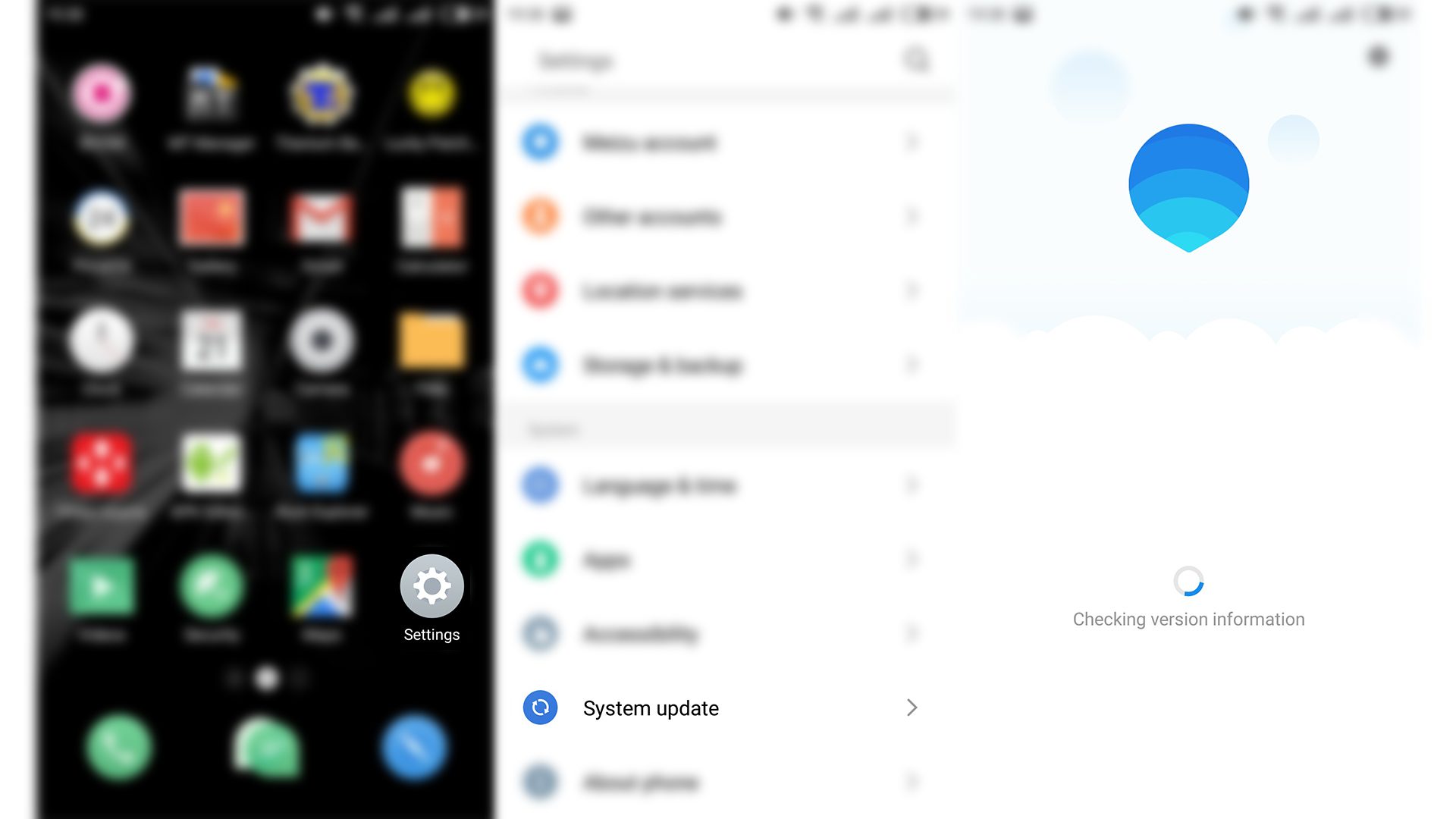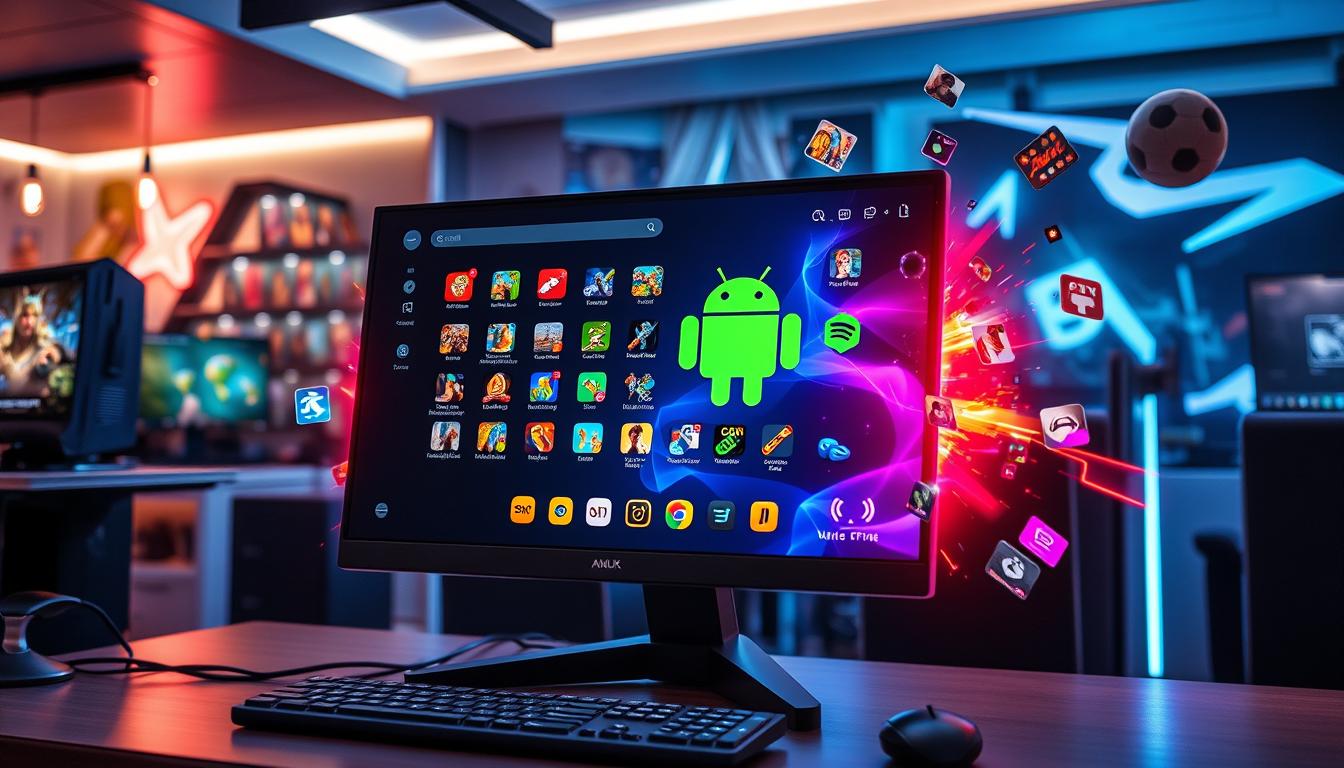In today’s digital world, keeping your mobile device safe is crucial. Android malware and cyber threats are on the rise. So, Are you doing enough to protect your Android device? This guide will show you key steps to safeguard your data and enjoy a secure Android experience.

Key Takeaways
- Understand Android’s built-in security framework and how it protects your device
- Effectively manage app permissions to mitigate security risks
- Leverage Google Play Protect and stay updated on Android security patches
- Implement strong authentication methods and secure data storage practices
- Safeguard your device when using public Wi-Fi networks
Understanding Android’s Built-in Security Framework
Android’s security is strong and has many layers to protect users and their data. It has key parts that work together to make Android safe.
Application Sandbox Isolation
Android’s app sandbox is a key feature. It keeps each app’s data and code separate from others. This helps stop apps from messing with each other, making Android more secure and stable.
Default System Permissions
Android has a system of permissions to control access to features and data. Apps get permissions based on what they need. This limits what apps can do and keeps sensitive info safe.
Memory Management Protection
Android fights memory issues with technologies like ASLR and NX bit. These tools prevent attacks that try to overflow memory. They make Android’s memory safer.
Android’s security framework is built on these strong parts. It uses app sandboxing, permissions, and memory protection. This creates a solid base for safe mobile use.
Setting Up Device Lock Screen Security
Securing your android device begins with a strong lock screen. Android has many options to keep your device safe, like PIN, pattern, password, and biometric methods. These include fingerprint and facial recognition.
For the best android device security, use a 6-digit PIN or longer. Longer PINs are safer because they’re harder to guess. You can also turn on “Auto-confirm unlock” to unlock your device with just a tap after entering your PIN. This makes unlocking easier without losing mobile device security.
The pattern lock lets you unlock with a unique screen pattern. Or, a strong password with at least 7 characters, including a letter, offers top android access control.
For extra security, try biometric authentication like fingerprint or face recognition on compatible devices. These features add a layer of protection while still being quick to use.
Choose any lock screen method you like, but make sure to lock your android device automatically after a short time of inactivity. This keeps your device safe, even when you’re not using it.

If you need help setting up your device’s lock screen security, there are many resources available. Community help and guides can walk you through the steps.
Managing App Permissions Effectively
Android’s permission system lets you control what apps can do on your device. By checking and removing permissions you don’t need, you boost your security and privacy.
Reviewing App Permission Access
Android lets you see what permissions each app has. Look in your device’s Settings, under “Apps & notifications” or “Privacy”. Check if the permissions an app asks for are really needed.
Revoking Unnecessary Permissions
If an app asks for too many permissions, you can take them back. This reduces the chance of your data being stolen. You can usually find how to do this in the app’s settings or your device’s privacy settings.
Understanding Permission Groups
Android groups permissions like location, camera, and storage. When you give a permission, the app might get others in that group too. Knowing these groups helps you decide which permissions to allow or block.
| Permission Group | Examples |
|---|---|
| Location | Precise location, approximate location |
| Camera | Camera, read media |
| Storage | Read external storage, write external storage |
| Microphone | Record audio |
| Contacts | Read contacts, write contacts |
By managing your app permissions, you can balance app use with your android security best practices.
“The best way to protect your privacy is to only grant the minimum permissions necessary for an app to function.”
Google Play Protect and App Safety
Your Android device’s security is very important. Google Play Protect is key in keeping it safe. It checks apps for threats or android security vulnerabilities.
Google Play Protect focuses on android malware protection. It scans 125 billion apps every day. It works with top security companies to protect your device.
Apps must pass strict tests before they can be on the Google Play Store. You can also help by reporting harmful apps to Google.
- Google Play Protect checks apps from the Google Play Store before download and scans devices for potentially harmful apps from other sources.
- The system may deactivate or remove harmful apps from devices and send privacy alerts about apps violating Developer Policy.
- On certain Android versions, Google Play Protect may reset app permissions for privacy protection.
- Users are warned about unsafe apps and URLs, and recommendations are provided to scan unknown apps.
- Google may reset app permissions for unused apps to protect private data and alert users about app removals from the Google Play Store that access personal information.
Google Play Protect protects 2 billion Android devices. It scans over 50 billion apps daily. This system is crucial in keeping your Android safe from threats.

“Google Play Protect is the most widely deployed mobile threat protection service globally, scanning 125 billion apps daily to ensure the security of Android users.”
Android Security Updates and Patch Management
Keeping your Android device safe is key. One important step is to make sure you have the latest security updates and patches. These updates not only add new features but also fix known problems, protecting your device and data from threats.
Importance of Regular Updates
Cybercriminals are always looking for weaknesses in Android. They try to use these weaknesses before they are fixed. In 2021, over 20,142 known vulnerabilities (CVEs) were reported. This shows how important it is to keep your device updated.
Checking for System Updates
It’s crucial to check for system updates regularly and install them quickly. You can usually find this option in your device’s settings. Try to enable automatic updates so your device can get security patches right away.
Security Patch Level Verification
Also, make sure to check your device’s security patch level. You can find this in your device’s settings. It shows the latest security patch applied. Keeping this up-to-date helps protect against new threats.
Having a good patch management plan is vital for android security updates, vulnerability management, and android vulnerability scanning. By keeping your Android device updated, you can lower the risk of cybercrime.
Secure Data Storage Practices
Android has many ways to keep your data safe. Using internal storage for app data is a top choice. It keeps your info private and away from other apps.
Stay away from old storage modes like MODE_WORLD_WRITEABLE. They can let data leak. Use content providers with the right permissions to share data safely.
External storage might be easy to use, but it’s not safe. It’s open to everyone and can be taken out. Always encrypt data stored here to keep it safe.
| Storage Option | Accessibility | Recommended Usage |
|---|---|---|
| Internal Storage | App-specific, default private access | Store sensitive or app-specific data |
| Content Providers | Shared data with appropriate permissions | Securely share data between apps |
| External Storage | Globally accessible and removable | Store non-sensitive data with encryption |
By following these tips, you can keep your Android device’s data safe. This helps protect your privacy and that of your users.

Authentication Methods and Security
In today’s digital world, strong authentication methods are key to protecting your Android device. They keep your personal info safe. Android offers many ways to secure your apps, making them easy to use and safe.
Biometric Authentication Options
Android’s biometric features like fingerprint and face recognition are easy and secure. Use the BiometricPrompt API to add biometric login to your apps. This makes apps more private and less dependent on passwords.
Password Best Practices
Passwords are still important, even with biometrics. Tell your users to make strong, unique passwords. Use password managers and autofill to make logging in easier. Always update your app’s password rules to fight new threats.
Smart Lock Features
Android’s Smart Lock makes your device more convenient and secure. It unlocks your device in trusted places, like near familiar Bluetooth devices or in safe locations. These features improve your app’s security and user experience.
| Authentication Method | Key Benefits | Recommended Use Cases |
|---|---|---|
| Biometric Authentication | Improved user experience Enhanced security Reduced reliance on passwords | Sensitive financial transactions Access to confidential information High-risk app functionalities |
| Password-based Authentication | Widespread familiarity Flexible implementation Complementary to biometrics | General app access Account creation and sign-in Backup authentication for biometrics |
| Smart Lock Features | Improved user convenience Seamless unlocking experiences Contextual security controls | Trusted device environments Familiar location-based unlocking Supplementary to primary authentication |
Using a mix of authentication methods makes your Android apps more secure. It also gives users a smooth and safe experience. Keep up with the latest secure coding practices for android. Use android biometrics to protect your users’ authentication methods.
Network Security and Safe Browsing
Keeping your Android device safe is key. This means using secure communication protocols like HTTPS for all network interactions. It protects your data from being intercepted or tampered with.
Always check data from unknown sources before using it in your app. This step helps prevent vulnerabilities that hackers might exploit. Also, turn on safe browsing in your app’s web browsers. It warns users about dangerous sites and keeps them safe from phishing or malware.
Android’s Network Security Config feature lets you tweak your app’s security. You can set trusted Certificate Authorities, make HTTPS the default, and create custom security policies for your app.
| Statistic | Value |
|---|---|
| Safe Browsing protects half the world’s online population. | 50% |
| Safe Browsing scanning infrastructure protects the Chrome Web Store from harmful extensions. | 100% |
| Safe Browsing alerts users in search results when a dangerous site is detected. | Yes |
| Safe Browsing identifies dangerous links in Gmail messages to protect users. | Yes |
| Google’s Ads Security team uses Safe Browsing to ensure Google ads do not promote dangerous pages. | Yes |
Focus on android network security and use secure protocols in your apps. This way, you protect your users’ data and privacy. It makes their experience better and builds trust in your apps.

Android Security in Public Wi-Fi Networks
Keeping your Android device safe on public Wi-Fi is key. These networks are often targets for hackers. They might try to steal your data or get into your device without permission.
VPN Usage Guidelines
Using a virtual private network (VPN) is a top way to protect yourself online. A VPN encrypts your internet, making it tough for hackers to get your info. Always use a VPN on public networks to keep your data safe and private.
Network Security Precautions
- Don’t share sensitive info like bank details or login info on public Wi-Fi.
- Turn off Wi-Fi and Bluetooth to stop your device from connecting to unknown networks.
- Make sure the network name is real before connecting. Watch out for fake “evil twin” networks.
- Turn on your device’s firewall to block unauthorized access and malware.
- Use a personal mobile hotspot or private Wi-Fi instead of public Wi-Fi when you can.
By following these tips, you can lower the risks of using public Wi-Fi. Keep your digital security and privacy in mind to stay safe while on the move.
| Security Tip | Benefit |
|---|---|
| Use a VPN | Encrypts your internet traffic and hides your IP address, protecting your online activities and data. |
| Verify network legitimacy | Helps prevent connection to fake “evil twin” hotspots set up by attackers to intercept your data. |
| Disable auto-connect | Prevents your device from automatically connecting to unknown or potentially malicious networks. |
| Enable firewall | Adds an extra layer of protection against unauthorized access and malware threats. |
“Using a VPN on public Wi-Fi is the best way to ensure your online activities and sensitive data remain secure and private.”
By taking these steps, you can lower the risks of mobile threat defense and android vulnerability assessment on public Wi-Fi. Always be careful and keep your digital security in mind to protect your info and device from cyber threats.
App Pinning and Guest Mode Settings
Keeping your Android device and personal data safe is crucial. Android has features like app pinning and guest mode to help. These features let you control and keep your privacy when sharing your device.
The app pinning feature locks your device to one app, covering the whole screen. It’s great for sharing your device temporarily. To use app pinning, go to Settings > Security & Privacy and turn it on. You can also choose to ask for a PIN before unpinning for more security.
Guest mode on Android is another way to share your device safely. It keeps your personal apps, photos, and settings hidden. To start guest mode, go to System settings and pick Multiple users. Then, add a new user or enable the guest profile. This keeps your info safe while letting others use your device for basic tasks.
Some Androids also have an app lock feature. It secures certain apps with a PIN or biometrics. You can find it in Security & Privacy settings or download an app lock from the Google Play Store if it’s not there.
Using app pinning and guest mode boosts your android security best practices and android device hardening. This way, your personal info stays safe when you share your device.

Encryption and Data Protection
In today’s digital world, keeping your Android device safe is key. With data breaches and cybercrime on the rise, protecting your data is essential. Android data encryption is a powerful tool for this.
Android has strong security features to keep your data safe. Full-disk encryption on devices from 5.0 to 9.0 locks down all data. This makes it hard for others to access your device, even if it’s lost or stolen.
Newer Androids use file-based encryption from Android 7.0 and up. This method encrypts files and folders one by one. It gives you more control over your data and makes your device run smoother.
The keystore system is also vital for Android’s security. It helps apps manage and use encryption keys safely. This keeps your data safe when you’re sending or storing it.
It’s also important to use encryption techniques in your apps. Using strong encryption like AES or RSA protects user data. This includes things like login info, payment details, and personal info from hackers.
Android’s SafetyNet Attestation API helps check your device’s security. It makes sure your device is running a real, unaltered version of Android. This adds an extra layer of defense against threats.
By using these encryption and data protection methods, you can make your Android device more secure. This keeps your personal info safe, giving you peace of mind in today’s digital world.
“Encryption is the first line of defense in protecting your digital information.” – Edward Snowden
Emergency Contact Setup and Safety Features
In emergency situations, quick access to important info and the ability to call for help can save lives. Android’s emergency features offer security and peace of mind. They help you stay protected and connected when it counts.
SOS Emergency Settings
The SOS emergency feature on Android devices lets you quickly trigger actions in an emergency. Pressing the power button 5 times or more starts a call to emergency services. It also records video with both cameras and shares your location and updates with emergency contacts.
The emergency video recording can capture up to 45 minutes of footage. Each sharing link expires after 7 days. This feature is available on Android 12 and later, needing location services and permissions for best performance.
Emergency Information Access
Android lets you store critical medical info, like blood type and allergies, on your lock screen. This way, first responders can quickly access this vital data in emergencies, even if your device is locked. You can set this up in your device’s settings, adding more android security features and android data privacy protection.
The Emergency Location Service on Android can automatically share your location with emergency services when you call or text emergency numbers. This makes their response faster and more effective.

Configuring these emergency settings and info can make you feel more secure and ready for unexpected situations. Remember, the safety of you and your loved ones is crucial. Android’s emergency features are designed to be a reliable lifeline when it matters most.
Anti-Theft Protection and Device Location
Keeping your android device security and mobile device security safe is key today. Android’s anti-theft features, like Find My Device, are crucial. They let you find, ring, lock, or erase your device if it’s lost or stolen.
Make sure to set up a Google account recovery method. This way, you can always access anti-theft controls, even if your device is stolen. Also, look into third-party anti-theft apps for more protection and peace of mind.
Theft Detection and Remote Lock
Android’s security keeps getting better to protect your data. The Theft Detection Lock uses AI and sensors to detect theft and lock your screen. The Remote Lock lets you lock your device from anywhere, needing a verified phone number to unlock it.
Offline Device Lock and Failed Authentication
The Offline Device Lock locks your screen when it goes offline for too long. This stops thieves from accessing your data. The Failed Authentication Lock also kicks in after too many wrong login attempts, adding more security.
Using strong PINs, patterns, or biometrics with these anti-theft tools can really protect your android device security and mobile device security. Always be careful and take steps to keep your data and device safe.
| Feature | Description | Availability |
|---|---|---|
| Theft Detection Lock | Automatically locks the screen when suspicious theft movement is detected | Gradually rolling out to support Android devices covering 90% of active users worldwide |
| Remote Lock | Allows locking the screen remotely with a verified phone number, which can only be unlocked locally with the screen lock | Available for Android 10+ devices, to be updated later in the year |
| Offline Device Lock | Automatically locks the device screen after it goes offline, preventing data access by thieves | Available through Google Play services update later |
| Failed Authentication Lock | Activates after consecutive failed authentication attempts, enhancing security by locking the screen | Available through Google Play services update later |
Safe App Installation Guidelines
When it comes to android app security, being careful about the apps you install is key. To keep your secure android development safe, follow these steps for installing apps:
Verifying App Sources
Only install apps from trusted places like the Google Play Store. Turn on Google Play Protect to check apps before you install them. This adds an extra security layer against android malware. Don’t install apps from unknown sources, as they might have harmful code.
App Permission Analysis
Look closely at the permissions an app asks for before you agree. Be cautious of apps that want too many permissions. This could mean they’re a privacy or security risk. Check the permissions of your apps often and remove any you don’t trust or need anymore.
- Analyze app permissions to ensure they align with the app’s functionality.
- Avoid granting excessive permissions that could compromise your device’s security.
- Regularly review and manage app permissions to maintain a secure Android environment.
By sticking to these safe app installation guidelines, you can greatly improve your android app security. This helps protect you from android malware threats.

Conclusion
Following these Android security tips can greatly improve your device’s safety. Always update your security practices and know about new Android security features. Being careful online is also important.
Android has top-notch mobile app security like hardware protection and Google Play Protect. By using these Android security best practices, you can keep your device and data safe from cyber threats.
It’s key to stay up-to-date and proactive with Android security. Use your Android’s security features and always prioritize security online. This way, we can all enjoy a safer mobile experience.
FAQ
What are the key security features of the Android operating system?
Android has many security features. These include app sandboxing, secure IPC, and memory protection. Technologies like ASLR and ProPolice help keep apps safe.
How can I set up a secure lock screen on my Android device?
To secure your lock screen, use PIN, pattern, password, or biometrics. Enable auto-lock and use Smart Lock for trusted places.
How can I effectively manage app permissions on my Android device?
Check and remove app permissions you don’t need. Understand what each permission does. This helps keep your device safe and builds trust.
What is Google Play Protect, and how can it enhance my Android device’s security?
Google Play Protect scans apps for threats. It works on apps from Google Play and third-party sources. Turn it on for better security.
Why are regular Android system updates and security patches important for maintaining device security?
Updates and patches fix vulnerabilities. Check for updates and install them quickly. Make sure your device is up to date.
What are some secure data storage options on Android?
Android has safe storage options. Use internal storage for app data and content providers for shared data. Be careful with external storage.
How can I implement strong authentication methods in my Android apps?
Use the Credential Manager API for passkeys and passwords. Consider biometrics for sensitive apps. Android’s autofill and Smart Lock features are also useful.
What secure network practices should I follow in my Android apps?
Always use HTTPS and validate data from unknown sources. Enable safe browsing and customize network security with Android’s Network Security Config.
How can I stay safe when using public Wi-Fi networks on my Android device?
Use a VPN on public Wi-Fi. Avoid sensitive info on public networks. Disable auto-connect and watch out for fake hotspots.
How can I protect my Android device and data in case it’s lost or stolen?
Enable Find My Device for remote control. Set up a Google account recovery. Use third-party apps for extra protection.
How can I ensure I only install apps from trusted sources on my Android device?
Get apps only from the Google Play Store. Use Play Protect and check permissions before installing. Avoid sideloading and regularly review apps.












